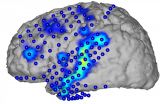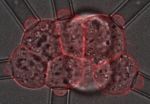(Press-News.org) Researchers have discovered that extreme exercise can cause intestinal bacteria to leak into the bloodstream, leading to blood poisoning.
Experts at Monash University monitored people participating in a range of extreme endurance events, including 24-hour ultra-marathons and multi-stage ultra-marathons, run on consecutive days.
"Blood samples taken before and after the events, compared with a control group, proved that exercise over a prolonged period of time causes the gut wall to change, allowing the naturally present bacteria, known as endotoxins, in the gut to leak into the bloodstream. This then triggers a systemic inflammatory response from the body's immune cells, similar to a serious infection episode.
Significantly the study found that individuals who are fit, healthy and follow a steady training program to build up to extreme endurance events, develop immune mechanisms to counteract this, without any side effects.
However individuals who take part in extreme endurance events, especially in the heat and with little training, put their bodies under enormous strain above the body's protective capacity. With elevated levels of endotoxins in the blood, the immune system's response can be far greater than the body's protective counter-action. In extreme cases, it leads to sepsis induced systemic inflammatory response syndrome, which can be fatal if it is not diagnosed and treated promptly.
The study, led by Dr Ricardo Costa, from the Department of Nutrition and Dietetics, is the first to identify a link between extreme endurance exercise and the stress it may place on gut integrity.
"Nearly all of the participants in our study had blood markers identical to patients admitted to hospital with sepsis. That's because the bacterial endotoxins that leach into the blood as a result of extreme exercise, triggers the body's immune cells into action."
The 24-hour ultra-marathon study, published in the International Journal of Sports Medicine and the multi-stage ultra-marathon study, published in Exercise Immunology Reviews, both by Dr Costa's team, reinforces current guidelines for people wanting to take part in extreme endurance events. These include getting a health check first and developing a training program that builds fitness and endurance progressively to meet the stresses and strains of the event.
Dr Costa said anything over four hours of exercise and repetitive days of endurance exercise is considered extreme.
"Exercising in this way is no longer unusual - waiting lists for marathons, Ironman triathlon events and ultra-marathons are the norm and they're growing in popularity," he said.
"It's crucial that anyone who signs up to an event, gets a health check first and builds a slow and steady training program, rather than jumping straight into a marathon, for example, with only a month's training," he said.
The research team found that people who were fitter and trained over a longer period of time leading into the ultra-marathon event had higher levels of Interleukin 10 - an anti-inflammatory agent, which allowed them to dampen down the negative health impacting immune response.
"The body has the ability to adapt and put a brake on negative immune responses triggered by extreme endurance events. But if you haven't done the training and you're unfit - these are the people who can get into trouble," Dr Costa said.
The next phase will see Dr Costa's team conduct further research into fully understanding the degree to which exercise, with and without heat, impacts gut integrity and function. They will also investigate and develop strategies for individuals to prevent and manage gut damage and symptoms caused by exercise and heat stress.
INFORMATION:
A promising type of vaccine designed to eradicate malaria by blocking parasite transmission could be a step closer, as a result of experts uncovering new information about the targeted protein.
The international team of researchers co-led by Dr Natalie Borg from the Department of Biochemistry and Molecular Biology at Monash University, and Dr Rhoel Dinglasan from the Malaria Research Institute at the Johns Hopkins Bloomberg School of Public Health in Baltimore, USA, focused on a protein in the Anopheles mosquito midgut called AnAPN1.
The research, published in the journal ...
Restricting teenagers from driving unsupervised at night, and introducing strict penalties and other licensing requirements, could reduce crashes significantly, according to research.
Published in Health Affairs, the study by researchers from Monash University and Harvard Medical School, shows that driving laws that eliminate or deter unsupervised night driving by people younger than 18 achieve substantial reductions in car crashes.
Car crashes are the leading cause of death among people aged 15-19 worldwide. In the US, where the study was based, teen drivers experience ...
This news release is available in German.
Speech is produced in the human cerebral cortex. Brain waves associated with speech processes can be directly recorded with electrodes located on the surface of the cortex. It has now been shown for the first time that is possible to reconstruct basic units, words, and complete sentences of continuous speech from these brain waves and to generate the corresponding text. Researchers at KIT and Wadsworth Center, USA present their "Brain-to-Text" system in the scientific journal Frontiers in Neuroscience (doi: 10.3389/fnins.2015.00217). ...
For breast cancer to be fatal, the tumor has to send out metastases to other parts of the body. The cancer cells are spread via the blood vessels, and a research team at Lund University in Sweden has now proven that the protein ALK1 determines the extent of the tumor's spread in the body. The higher the levels of the protein on the surface of the blood vessels, the greater their permeability to tumor cells and therefore the greater the risk of metastases.
The new study also shows that the drug Dalantercept can prevent the spread of tumour cells in breast cancer by blocking ...
This news release is available in German.
In 1915 Albert Einstein formulated the theory of general relativity which fundamentally changed our understanding of gravity. He explained gravity as the manifestation of the curvature of space and time. Einstein's theory predicts that the flow of time is altered by mass. This effect, known as "gravitational time dilation", causes time to be slowed down near a massive object. It affects everything and everybody; in fact, people working on the ground floor will age slower than their colleagues a floor above, by about 10 nanoseconds ...
The same kind of contraction that fires our muscles also controls a key stage of mammalian embryo development, according to a new study published in Nature Cell Biology. The research, conducted at EMBL Heidelberg, measured and mapped how cells in very early stage embryos bond tightly together. The scientists also discovered a cellular behaviour that hadn't been observed before: cells in the embryo 'dance', each one making the same rhythmic movement.
The focus of the study was a stage of development known as compaction, which takes place when the embryo has eight cells. ...
In recent decades, enormous successes have been achieved in the field of public health. Three examples of these are the fight against HIV, the reduction in cardiovascular disease, and protection for non-smokers. For Germany to make even better use of the potential of public health, it needs more political support, improved research structures, and stronger international involvement. The German National Academy of Sciences Leopoldina, acatech - the National Academy of Science and Engineering, and the Union of the German Academies of Sciences and Humanities point this out ...
Starfish have strange talents. Two biology students from University of Southern Denmark have revealed that starfish are able to squeeze foreign bodies along the length of their body cavities and out through their arm tips. This newly discovered talent gives insight into how certain animals are able to quickly heal themselves.
The two biology students, Frederik Ekholm Gaardsted Christensen and Trine Bottos Olsen have discovered a starfish behaviour that has never previously been described in the scientific literature. As part of their studies they were asked to tag some ...
Chimpanzees and bonobos are the two closest living relatives of the human species - the ultimate tool-using ape. Yet, despite being so closely related on the evolutionary tree, wild chimpanzees and bonobos differ hugely in the way they use tools.
Chimpanzees show the most diverse range of tool use outside of humans. For example, chimpanzees use sticks to 'fish' for ants and termites, stones to crack nuts, as well as tools for grooming and communication. Bonobos rarely use tools and never to forage for food.
The question of 'what makes a tool user?' is a key one in ...
AUSTIN, Texas -- Improving air quality -- in clean and dirty places -- could reduce pollution-related deaths worldwide by millions of people each year. That finding comes from a team of environmental engineering and public health researchers who developed a global model of how changes in outdoor air pollution could lead to changes in the rates of health problems such as heart attack, stroke and lung cancer.
Outdoor particulate air pollution results in 3.2 million premature deaths annually, more than the combined impact of HIV-AIDS and malaria. The researchers found that ...




